Since our last new members introductory blog back in 2021 there’s been quite a lot of change to the team, so we wanted to introduce everyone again. We hope that this way you can get to know a bit about who we are and what we all do day-to-day to keep this important FTD research ticking along. So, without further ado…say hello to the team!
Professor Jonathan Rohrer – @jonrohrer

I am a Professor of Neurology and have been working in FTD research for nearly 20 years. The goal of our team is to work towards a cure for FTD. We do that by working with families where there is a genetic form of FTD who we look after in our clinic and who help us in our large international study called GENFI. We develop new biomarkers that might be used in clinical trials to show a drug has worked or to say when a drug should be given. Within the team we have people working on cognitive tests, digital measures, brain imaging and fluid biomarkers. I am a father of 7-year old triplets and so spend much of my spare time building Lego and reading Harry Potter!
Dr Lucy Chisman-Russell – Postdoctoral Research Fellow – @LucyL_Russell
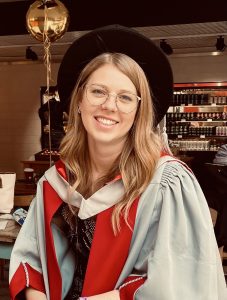
Hi, I am Lucy. I am a postdoctoral research fellow and I coordinate the Frontotemporal Dementia (FTD) Prevention Initiative (FPI) which aims to help promote clinical trials for genetic forms of FTD. I work with researchers from around the world to help support them in their research and involve them in clinical trials. My favourite thing about working in FTD is the sense of community you get from the field, ranging from the collaborations between the researchers, to the links we have with pharmaceutical companies and patient advocacy groups, to how involved those living with FTD want to be. It is great to be part of such a cohesive movement to try and find a cure for FTD. Outside of work, I love to explore the countryside with my family and dogs, and like to go sea swimming when it’s not too cold!
Dr Mica Clarke – Postdoctoral Research Fellow – @mtmclarke
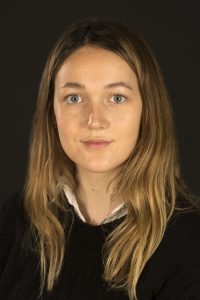
I am a postdoctoral researcher investigating changes that happen in the brain in FTD using a type of brain scan called a PET scan. I am hoping to identify parts of the disease process we can try to treat, as well as find measures to track the progression of disease. My main interests are in the involvement of inflammation in the disease process, as well as changes in communication between brain cells. The FTD research community is full of enthusiastic and like-minded researchers, and I have been privileged to work on some great collaborative studies exploring some of the molecular changes in FTD. I hope these will contribute to the design of clinical trials of drugs to treat FTD. I love science and art in equal measure – I love interior design and spend a lot of my spare time renovating and decorating my old home!
Dr Rhian Convery – Postdoctoral Research Fellow – @rhianconvery
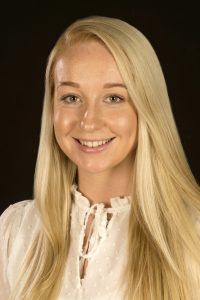
Hi, I am Rhian, a postdoctoral researcher in the team and I coordinate the Early detection of Frontotemporal dementia (EDoF) study. The aim of EDoF is to develop a set of digital tools for the assessment of cognition, sleep, speech, and motor function in FTD. Digital measures can be used to monitor and track symptoms frequently from the comfort of patient’s homes. It is an exciting time for FTD research with disease modifying clinical trials taking place, and digital assessments will likely play an important role. My favourite thing about working in the field is being part of a wonderful community of researchers, patients, family members and now pharmaceutical companies, all actively contributing to clinical trials and the development of novel therapeutics. Outside of work, I like to cycle, try new restaurants and coffee spots, and enjoy all that London has to offer!
Dr Aitana Sogorb-Esteve – Senior Research Fellow – @aitanasogorb
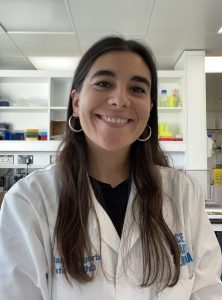
I am a Senior Research Fellow in the team, helping with the coordination of the fluid biomarker lab. My research focuses on the study of brain proteins that we can find in blood or spinal fluid. These proteins can come from different parts of the brain and can be indicators of the health of it, so they are very useful to help not only with the diagnosis of FTD, but also as target identifiers for the development of therapies, or to monitor the progression and development of such therapeutical interventions. I am specifically interested on how brain cells communicate and what goes wrong with this in dementia. These communications between brain cells are called synapses and we are now able to detect changes in these synapses measuring proteins in spinal fluid from people with FTD. My goal now is to develop a new methodology to be able to measure such proteins in blood samples, making life easier for people living with FTD. For me there are 2 things I like the most in FTD research. The first one is that you are doing something that could help a lot of people, and that is a huge motivation. The second one is that very little is known about FTD, and therefore there is still a lot to learn and discover. I am a very social person, maybe it comes with my culture, but I really enjoy meeting my friends, music (attempting to play it but enjoying listening to it) and it depends on the time of the year, sometimes knitting, sometimes crosswords!
Dr Martina Bocchetta – Honorary Senior Research Fellow – @BocchettaM
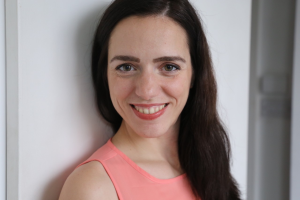
I am a Lecturer and Honorary Senior Research Fellow. Since I joined the Rohrer’s Lab in 2014, I have been interested in investigating brain measures on MRI and particularly how subcortical structures are structurally and functionally connected in the different forms of FTD. My final goal is to improve our understanding of this heterogenous disease, by measuring when FTD starts in the brain and how it progresses over time. This will be crucial to help in the quest for a cure, specifically in identifying neuroimaging biomarkers for prognosis, outcome measures or stratification in clinical trials. It is fascinating seeing the amount of progress made by the FTD community over the last few years, especially thanks to international collaborations.
When I am not straining my eyes looking at small nuclei in the brain, I love cooking (I am Italian after all!), reading, travelling, but especially spending time with my family and friends.
Dr Kerala Adams-Carr – PhD Student – @KeralaAdamsCarr
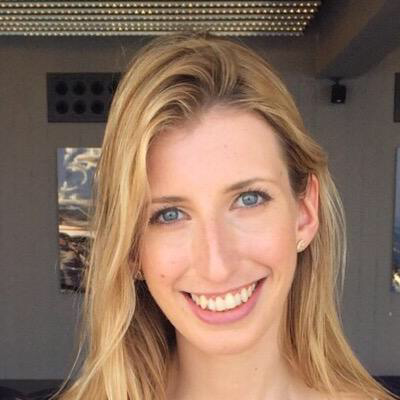
Hi, I’m Kerala, I’m a neurology registrar and clinical research fellow, completing a PhD within Prof Rohrer’s lab. My PhD aims to develop new ‘digital biomarkers’ for use in FTD research and clinical trials. This means using technology such as ‘wearables’ (e.g. Fitbit smart watches), and computerised testing, to detect early changes of frontotemporal dementia and motor neurone disease. The aim is to use technology to monitor people remotely within clinical trials. There are many reasons I enjoy working within FTD research. One of these is getting the opportunity to meet participants attending a research visit who are at risk of developing genetic forms of FTD and/or MND. They provide huge motivation to contribute to this field of research that aims to develop treatments, and hopefully cures, for the disease. Outside of work I try to keep fit with cycling and yoga, and I enjoy going to the theatre. I also love a bit of DIY and gardening and own far too many power tools!
Dr Kiran Samra – PhD Student

Kiran is currently taking time out from her neurology training to undertake a PhD. The primary focus of her work is developing new and improved clinical ratings scales for FTD and she has already published an astonishing 5 papers this year alone! Kiran is currently on maternity leave but will be back to finish her PhD in the new year.
Imogen Swift – PhD Student – @immy_swift

I am a PhD student in the FTD fluid biomarker team. This means that on a day-to-day basis you can likely find me in the lab, pipetting and trying to work out what goes wrong in FTD using blood and spinal fluid. My favourite thing about working in FTD research is meeting participants and their families and listening to how we can help. Outside of work, I love to go for runs, play tennis, eat tasty food and watch copious amounts of TV with my cats and partner. A fun fact about me is that I am a quarter German and a quarter Scottish!
Arabella Bouzigues – PhD Student & Research Assistant – @A_Bouzigues

Hi I’m Arabella, a research assistant in the lab! I am the lead coordinator for our international multisite genetic FTD consortium (GENFI) which I have been involved in for the past 3 years. I am the point of call for researchers who are collecting data within the study from different sites for any issues regarding the protocol, data collection and storage. I have been helping to improve the backend of our coordination work to facilitate data collation and improve our data quality (whilst making the process more efficient)! I am also undertaking my PhD investigating novel imaging biomarkers in carriers of mutations in FTD-causing genes, at the Paris Brain Institute. I love working in the field of FTD research not only because it’s a fascinating condition with such specific symptoms, but also because we have the exciting opportunity to start making a real change for these patients with the advancement of clinical therapeutic trials. The community is very team-spirited, making working in this field so much more rewarding. Outside of research, I love to cook, ballroom/latin dance, cycle about the city and have overly ambitious weekend plans!
Sophie Goldsmith – Research Assistant – @SGoldsmith0
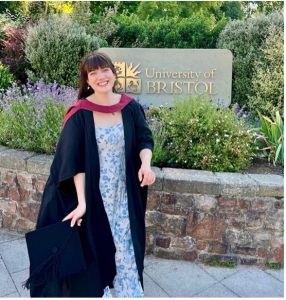
I am a research assistant and the GENFI study coordinator here at UCL, helping the research visits run smoothly. I have recently started my own research project looking into how we might be able to collect blood samples from home using something called blood cards. My favourite thing about being involved with FTD research is helping to coordinate the GENFI Participant Engagement Board and the fFTD Rare Dementia Support group meetings. These are a lovely way for our participants to meet, get to know each other and give us researchers hugely important feedback. In my spare time, I like to sew, crochet, run and read lots of books!
Phoebe Foster – Research Assistant – @PhoebeFoster_
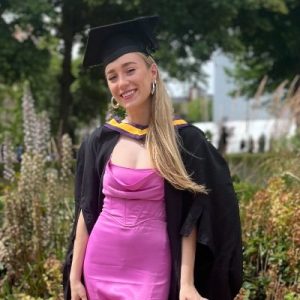
I am a research assistant working on the GENFI study as the projects’ Site Qualification and Liaison Coordinator. My role is to onboard new sites across Europe and Canada, ensuring all respective training and set-up is completed, whilst assisting with GENFI participant visits. Alongside this, I am a back-up rater on the FTD-related clinical trials at UCLH and am completing a research project investigating longitudinal changes in disease severity across FTD genetic groups. I appreciate the interdisciplinary nature of my role, as I can witness the real-world impact of our research efforts on patients and their families in a clinical setting. Outside of work, I enjoy keeping active and cooking, as well as travelling and experiencing other cultures.
Eve Ferry-Bolder – Research Assistant

My name is Eve and I joined the GENFI team in December 2022. My role in the team is Data Coordinator, so my main job is to ensure data collection goes smoothly. I liaise with sites to resolve any errors in the data or missing data, as well as checking the quality of MRI scans and arranging sample shipments, so that the data can then be used for research projects. I also help out with the participant visits, sometimes administering neuropsychological assessments. My favourite thing about FTD research is how passionate everyone is about their work. It’s exciting to be in a field where everyone cares so much about what they do, especially at conferences when you get to see what people are working on and it feels like real progress is being made. Outside of work I enjoy drawing and painting, and love to go surfing when I get the chance!
Katie Thompson – Research Assistant
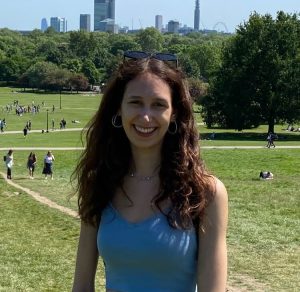
I am a Research Assistant in the Rohrer Lab, working within the fluid biomarker team. In my role, I perform assays, such as ELISAs, and other biomarker analyses within the Genetic FTD Initiative (GENFI) study and for associated clinical trials in FTD to investigate proteins signalling cellular dysfunction. I am particularly interested in identifying proteins in blood and cerebral spinal fluid that mark neuroinflammation, and how the expression of these proteins may change over time. For me, the clinical translation of FTD research to patients is really exciting, such as the ongoing development of therapeutic interventions to benefit patient quality of life. Research into disease mechanisms and biomarkers, coupled with a greater understanding of clinical symptoms and patient lived experience will hopefully lead to promising new breakthroughs in disease understanding, treatment and patient care. Outside of work, I love to hang out with friends, explore new places in London, swim and obsess over dogs I see out and about.
Eva Larsen – Research Assistant

I work on the Early Detection of FTD (EDoF) study, coordinating the collection of digital biomarker data. In this study we are using health tech like Fitbits, iPads for cognitive testing, and accelerometers, to identify the earliest FTD-related changes in participants. I am also working on two PET studies analyzing novel PET tracers for FTD, one that binds to neuroinflammation markers, and one that binds to FTD-tau. My favourite piece of research I have been involved with so far has been the digital biomarkers study. I have always been interested in sleep research, and the digital biomarkers study gives us a chance to better characterise how sleep patterns change in patients with FTD. Outside of work, one of my favourite things to do is to go for long runs around London. I have run two half marathons and I am training to run a third one in London in the spring. I am from the San Francisco, California area, and I spent the last few years learning how to ski up in Tahoe and am looking forward to checking the slopes in Europe this winter.
Sophie, on behalf of the FTD talk team.
Keep up to date on all things research by following us on twitter – @FTDtalk / @GENFI1

